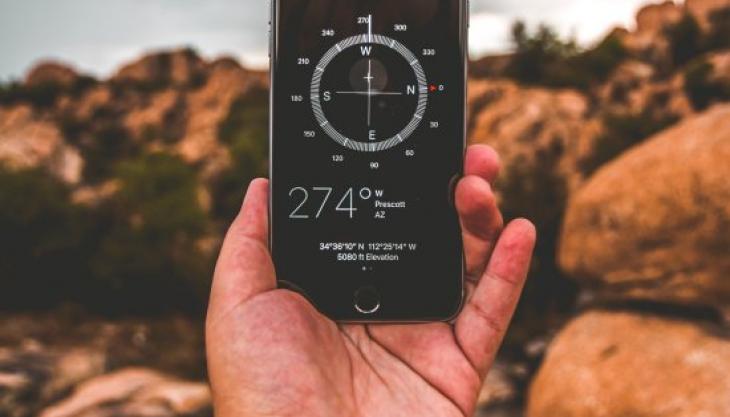Is Wilmington Bankruptcy The Right Path For You? It Depends On Your Dischargeable Debt
Submitted by Rachel R on Tue, 01/30/2018 - 8:59am

Is Wilmington bankruptcy the right path for you?
Image by Robert Penaloza via Unsplash
Being stuck with unmanageable debt is a situation most of us would rather not experience, but sometimes it’s unavoidable and creeps up on you. Dealing with a debt cycle can be stressful, but Wilmington bankruptcy is a possible solution. Bankruptcy isn’t a fit for every circumstance and whether it might benefit you depends on whether your debt is dischargeable.
Understanding Bankruptcy
Bankruptcy is the term used for the process of debt relief under the law. If you qualify, the court allows you to get rid of certain debts and avoid paying creditors. You must demonstrate to the court that you can’t afford to pay your debt under your current income – or that you need more time to pay your debt, depending on which type of bankruptcy you file. At the end of the bankruptcy process, you’ll get a discharge on most of your unsecured debt.
The two types of Wilmington bankruptcy for individuals are Chapter 7 and Chapter 13. From start to finish, Chapter 7 takes just a few months to complete and wipes out medical bills, credit cards, older utilities, and other unsecured debt. With Chapter 13, the process takes three to five years and allows you to catch up on secured debt while also discharging some unsecured debt including credit cards and medical bills for pennies on the dollar in some cases.
Should You Consider Bankruptcy?
There is no set yardstick to determine whether bankruptcy is the path you should take, but if you’re caught in a tough financial predicament, here are some factors that could indicate it’s time to consider bankruptcy:
- Do you owe unsecured debt (medical bills, credit cards, etc.) more than one year’s pay?
- Do you owe more unsecured debt than you can pay within three to five years?
- Are you being hounded by debt collectors and threatened with lawsuits?
- Are you living paycheck to paycheck?
- Is debt affecting your health, work and personal life, and peace of mind?
If one or more of these circumstances describe your life right now, bankruptcy might be well-suited to help you. However, you also need to understand whether the bulk of your debt is dischargeable in bankruptcy.
What Debt Is Dischargeable?
If debt can be wiped out either 100% in bankruptcy or for much less than face value, it’s a dischargeable debt. Once debt is discharged, it’s gone for good, and the creditor cannot come after you because the debt legally no longer exists.
Dischargeable debts are unsecured debts like credit cards and medical bills. Unsecured personal loans, like signature loans, should be dischargeable in bankruptcy. Also, if you have secured debt, like a car loan where the vehicle was repossessed, but there is a balance owed, that will be dischargeable as well.
Non-dischargeable debts are secured debts like your mortgage and auto loan. Student loans fall into a unique category and must be part of an Adversary Proceeding to request partial or total discharge. This is a separate legal action but might help you shed school debt. Be sure to read attorney reviews to make sure the lawyer you’re considering is a fit for you.
Should You File Bankruptcy?
If you have mostly dischargeable debts and cannot afford to pay them, Chapter 7 offers fast relief to those that qualify. You can file this type of bankruptcy at any income level, but if your income is higher, you’ll have to show the debt significantly outweighs your earnings.
If your debts are mostly secured debts, they are not dischargeable without surrendering the assets. For those who have fallen behind on their mortgage or car loan, Chapter 13 might be a better form of Wilmington bankruptcy because it puts you on a repayment plan to get current on payments.
Bankruptcy can be life-changing because it offers significant debt relief, peace of mind from debt stress, and can allow you to focus on what’s important – family and quality of life. To find out more about the benefits of North Carolina bankruptcy, contact the Law Offices of John T. Orcutt. Call +1-833-627-0115 for a free Wilmington bankruptcy consultation at one of our convenient locations in Raleigh, Durham, Fayetteville, Wilson, Greensboro or Wilmington.
Debts Hurt! Got debt? Need help? Get started below!
Serving All of North Carolina
- Bankruptcy Attorneys Raleigh NC (North)
- Bankruptcy Attorney Fayetteville NC
- Bankruptcy Attorney Durham NC
- Bankruptcy Attorneys Wilson NC
- Bankruptcy Attorneys Greensboro NC
- Bankruptcy Attorneys Southport NC
- Bankruptcy Attorneys Wilmington NC
Bankruptcy Attorneys Raleigh NC (North)
6616 Six Forks Rd #203 Raleigh, NC 27615 North Carolina
Tel: (919) 847-9750

Bankruptcy Attorney Fayetteville NC
2711 Breezewood Ave Fayetteville, NC 28303 North Carolina
Tel: (910) 323-2972

Bankruptcy Attorney Durham NC
1738 Hillandale Rd Suite D Durham, NC 27705 North Carolina
Tel: (919) 286-1695


Bankruptcy Attorneys Greensboro NC
2100 W Cornwallis Dr. STE O Greensboro, NC 27408 North Carolina
Tel: (336) 542-5993

Bankruptcy Attorneys Southport NC
116 N Howe St. Suite A Southport, NC 28461 North Carolina
Tel: (910) 218-8682

Bankruptcy Attorneys Wilmington NC
116 N. Howe Street, Suite A Southport, NC 28461 North Carolina
Tel: (910) 447-2987
